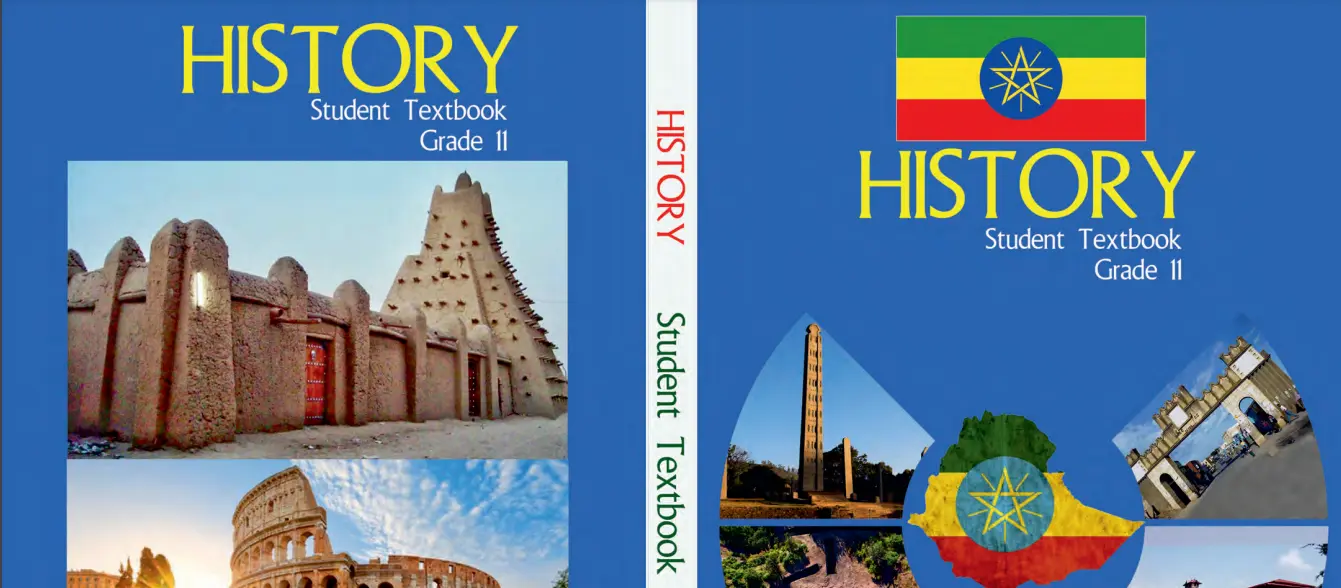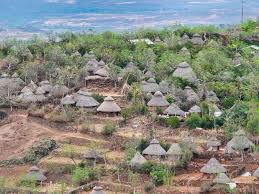We proudly present the Grade 11 History textbook, meticulously crafted by a team of dedicated educators and historians. This comprehensive textbook offers students a profound exploration of historical events and the evolution of human societies. Below, you’ll find an overview of the contents of this enlightening textbook and a direct link to download the PDF version.
File size
Meet the Authors and Contributors
Before we delve into the content of this Grade 11 History textbook, let’s acknowledge the authors and contributors who have worked tirelessly to create this invaluable resource:
- Writers:
- Wagaw Bogale, PhD
- Geremew Eskezia, PhD
- Content Editor: Yonas Legesse, M.A
- Language Editor: Abebe Admasu, PhD
- Illustrator: Temesgen Gebeyehu, Professor
- Book Designer: Fantahun Ayele, PhD
- Curriculum Editor: Dessu Wirtu, PhD
- Evaluators: Doctor Telila (M.A), Bekele Kenea (M.A), Zegeye W/Mariam (M.A)
With their collective expertise, this Grade 11 History textbook promises to be an invaluable resource for both students and educators.
Exploring the Textbook’s Contents
This Grade 11 History textbook is thoughtfully structured, covering a wide range of historical topics with depth and insight. Here’s an overview of the contents:
Unit 1: History, Historiography, and Human Evolution
- History and Historiography
- Origin of Human Beings
- Emergence of State
Unit 2: Major Spots of Ancient World Civilizations up to c.500 A.D
- Ancient Civilizations of Africa
- Civilizations in Asia
- Civilizations in Europe
Unit 3: Peoples, States, and Historical Processes in Ethiopia and the Horn to the End of the 13th Century
- Languages, Religions, and Peoples of Ethiopia and the Horn
- Pre-Aksumite States and their Geographical Setting
- The Aksumite Kingdom
- The Sultanate of Shewa
- Zagwe Dynasty
- The Kingdom of Damot
- The Bete-Israel (Ethiopian Jews)
Unit 4: The Middle Ages and Early Modern World, c. 500 AD-1789
- The European Middle Ages
- Main Features of the Middle Ages
- The Middle Ages in Asia
- Development of Early Capitalism: 1500-1789
- The Age of Exploration and Inception of Globalization
- The Renaissance
- The Reformation
- The Scientific Revolution and the Enlightenment
Unit 5: Peoples and States of Africa to 1500
- Ancient and Medieval African States
- North Africa
- Spread of Islam to North Africa
- States in West Africa
- Central and Eastern Africa
- Southern Africa
- Relationships and Exchanges among Different Regions of Africa
Unit 6: Africa and the Outside World: 1500-1880s
- Medieval African States
- Contacts with the Outside World
- Slavery and Slave Trade in Africa
- The Legitimate Trade
- The White Settlement in South Africa
- European Explorers and Missionaries: 1770-1870
Unit 7: States, Principalities, Population Movements, and Interactions in Ethiopia
- The Christian Highland Kingdom under the Restored “Solomonic” Dynasty
- The Expansion of Islam and the Emergence of Muslim Sultanates
- Political and Socio-Economic Conditions of the Southern and Central States in Ethiopia
- Relationship between the Christian Highland Kingdom and the Muslim Sultanate of Adal
- Population Movements in the Ethiopian Region
Unit 8: Political, Social, and Economic Processes in Ethiopia, Mid-16th to Mid-19th Century
- Peoples and States of Southern, Western, and Eastern Ethiopia
- Instability Versus Consolidation in the Christian Kingdom, 1559-1855
Unit 9: The Age of Revolutions, 1789 to 1815
- The Industrial Revolution and its Political, Economic, and Social Effects on Europe
- The American War of Independence
- The French Revolution
- The Period of Napoleon Bonaparte
Download the Grade 11 History Textbook
To access this comprehensive Grade 11 History textbook in PDF format and embark on a captivating journey through the annals of history.
This textbook not only imparts historical knowledge but also encourages critical thinking and a deeper understanding of the past. It is a valuable resource for students and history enthusiasts alike. Happy reading!





